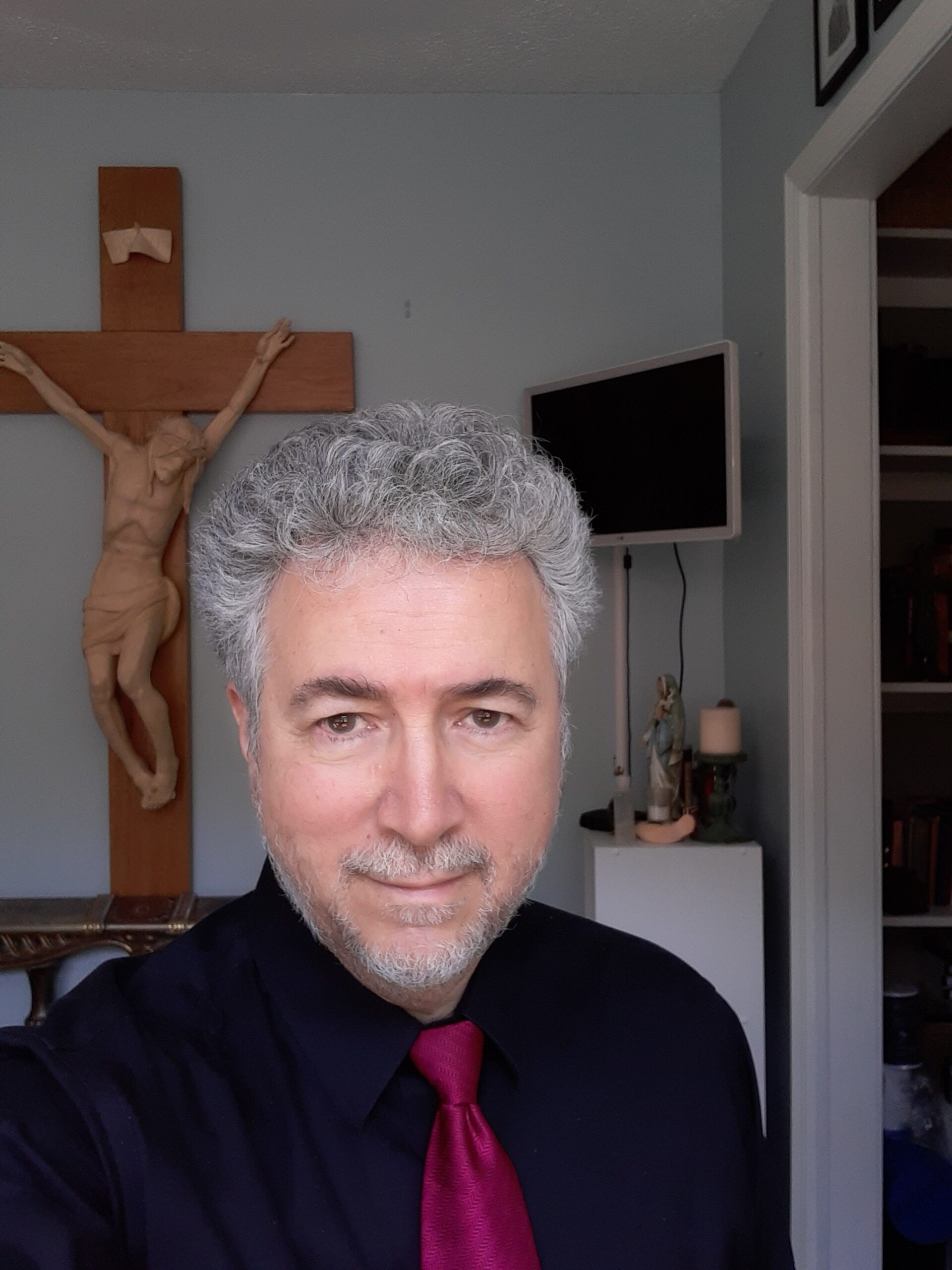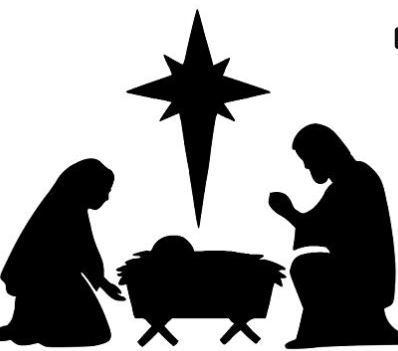Let’s play an imagination game. Let’s imagine that the invisible almighty Creator of the universe, who infinitely transcends the created order of time, space and matter, decided to become part of His creation. Like an author who writes Himself into his own novel, or an artist who paints himself into his own masterpiece, let’s imagine the God of the universe chose to become part of His creation.
Impossible, you might say. How could an eternal spiritual being that transcends creation possibly become so diminished as to enter space and time to become a mortal finite being? We could ask a similar question about the painter or the author. How could one possibly become a two dimensional being on a canvas or the other a character that comes alive within the pages of a book? Yet, in both instances, they are able to do it. The analogy for the eternal almighty Creator holds: It is possible to exist in two different dimensions, in two realms of reality (time and eternity), simultaneously.
And then, if this were to ever occur, if God were to become a mere human being – “If God was one of us” as pop singer Joan Osborne once imagined – wouldn’t everyone’s natural reaction be absolute awe? Wow. It would seem everyone’s first priority, by far, would be eagerly to know what He said and did. What could be more important?
Let us take stock of all the world’s great religious leaders in history. Have any of them made such an unimaginably lofty claim? Buddha never said he was God. Nor did Abraham or Moses claim divinity. Mohammed never made such a claim, nor did the Dalai Lama, Mani, Lao Tzu, or Confucius.
Every other religious leader claimed to have an enlightened message or a way of life to share; but none of them claimed to come down from Heaven to take on a human nature – except for Jesus. Virtually all non-Christian scholars concur that Jesus was a historical person and that He claimed to be God. Indeed, He is the only bona fide religious leader in history to make this claim.
This must be taken further. By following reason, one must consider the meaning of this unfathomable claim. One conclusion we can be certain of, even without religious faith, is that Jesus cannot be what most non-Christians claim Him to be: merely an enlightened teacher or prophet. That’s because, as C.S. Lewis once pointed out, for someone to claim to be God, and if that claim is false, he would have to be either a liar or a lunatic. In other words, if the claimant isn’t God he’s either delusional or evil. Logic dictates, therefore, that if Jesus is not what He said He was, He could never be trusted as a teacher or prophet.
Since logic limits the possibilities of Jesus’ true identity to Lord, liar, or lunatic, let us look at them a little closer. Would a liar possess the moral character of Jesus? Would a deliberate deceiver hold to His principles unto death if he could have slivered out of it as a skilled liar? And could such a lie last over two millennia? Most lies are uncovered rather quickly. The next option, being crazy or delusional, would elicit as little trust as being a liar. And could someone who is mentally deranged be so lucid in His parables and sermons, and so masterful in His verbiage when stumping the Scribes and Pharisees – who at the time, themselves, were masters of self-serving deception? Any honest person who reads the gospels, with or without faith, knows that Jesus was neither a liar nor a lunatic.
This leaves only one viable option, only one possibility for Jesus’ true identity: He is the incarnate God who came down from Heaven to reconcile us to the Father for our eternal salvation. No other option is feasible.
During this Advent and Christmas season it is fitting to express that awe mentioned above: Awe that the one God of the universe was born to the world, through Mary, in the small Middle-Eastern town of Bethlehem. As we celebrate the birthday of the incarnate second Person of the Trinity, there’s no time like the present to make a (deeper) commitment to know and love the God who humbled Himself to become human, to suffer and to die in order to conquer death for the rest of us.
Merry Christmas and happy newness of life.


Insightful. Important to reflect upon….JMJ+
That would make the Creator dependent on air to breathe and water to drink,
if God was dependent on air and water HE would cease to be God. God is not dependent on anything.
Paul writes: How could an eternal spiritual being that transcends creation possibly become so diminished as to enter space and time to become a mortal finite being? We could ask a similar question about the painter or the author. How could one possibly become a two dimensional being on a canvas or the other a character that comes alive within the pages of a book? Yet, in both instances, they are able to do it.
My question is: how does the author become alive within the pages of a book, or Van Gough become alive on a two dimensional canvas, the same way “God comes alive in HIS creation”, or indeed “alive” or “become” in any way at all, other than poetically?
Lawrence, the divine second Person of God has no such needs. Only His human nature, like ours, is dependent on these elements. He humbled Himself to become dependent in this way, in order to save and elevate human nature to a glorified, immortal state. So, Jesus doesn’t cease to be God by assuming a human nature. His resurrection is one sign of this truth.
If he is equally God, why is he dependent on “the will of the father.”? Again another CLEAR explanation that he is NOT equal. And to suggest that part of God is dependent on another part of God is the defining condition that it is NOT God. Everything else is just evangelising.
Let’s tackle your other question: “How does the author become alive within the pages of a book, or Van Gough become alive on a two dimensional canvas, the same way “God comes alive in HIS creation”, or indeed “alive” or “become” in any way at all, other than poetically?”
It’s not in “the same way”, but rather analogically. An analogy compares similarities. A character in a novel is alive within the dimension of the story. If he is killed off he’s no longer alive. Yet, you can’t take him out of the story and place him in our dimension of being. He’s does he exist in our sense. They are two different realms of being. So, as an author or painter can exist both on earth and within their creative work, so too does God in Jesus live in eternity as well as in time, as one of us.
Your analogy is a ‘false analogy”. Plain and simple. There is NO “sense” about it. There is NO “reality” in the writer or the painter being alive inside their own work, it is a poetic device that cannot competently compare God entering his own creation with consciousness. The idea of God entering his own creation is the very basis of the 2nd commandment because it leads to worship of the creation NOT the creator. Which, is PRECISELY what happened.
When you say “God has a son” you are saying that God is like creation, because men and women have sons but God is nothing like creation, he cannot be anything like creation because creation dies, it goes mouldy, stale and sour. And to say that Jesus was God and was God in the womb, and I intend to speak quite plainly here, so if you’re a bit soft around the edges turn off NOW, – was pushed out of a woman’s vagina, with the blood and fluids, like a human female gives birth or other creatures do like dogs, pigs or goats is the very reason you cannot declare God as his own creation. For precisely that vulgar disgusting reason I just wrote, God forgive me. That is what “God becomes his own creation” infers and worse. Jesus as a man/god, going to the toilet. And whilst I am writing this concept, it is YOU that worship it. You worship a man and his mother, you pray to creation Paul and that gentle sir is FORBIDDEN. And now you know why.
Lawrence, you’re failing to appreciate analogy. Of course characters in a novel are not alive in the sense an animal or human is alive. Yet, the ontological “space” between an author in real life and the same author in his own novel is similar to that of God’s eternal divine nature and His assumed human nature in Jesus. I know you disagree or are unable to grasp this, and that’s okay. I’m not forcing you to do so. There’s no need to continue your attacks. Your opinion has been heard.
As for your disgust for human nature, that’s another topic. Nonetheless, can God take on our fallen human nature in order to lift it up to glorification and immortality? A merciful God certainly could do such a thing. Christians believe He has. If you don’t respect the doctrine, at least maintain a minimum respect for the people who believe it.
If you see Christianity as idolatry and feel inspired to attack Christian doctrine, there are a number of ways you can do that, like starting your own blog, etc. But if you choose to remain attacking here what you disagree with or don’t understand by repeating assertions and accusations, that eventually places you in the category of ‘troll’, which serves no one.
Let’s pray for each other.
God bless.
A “troll” is someone who posts online to deliberately upset someone. I am not trying to upset you Paul.
I am trying to explain to you that your system of belief contradicts your foundation statement, “I seek the truth.”